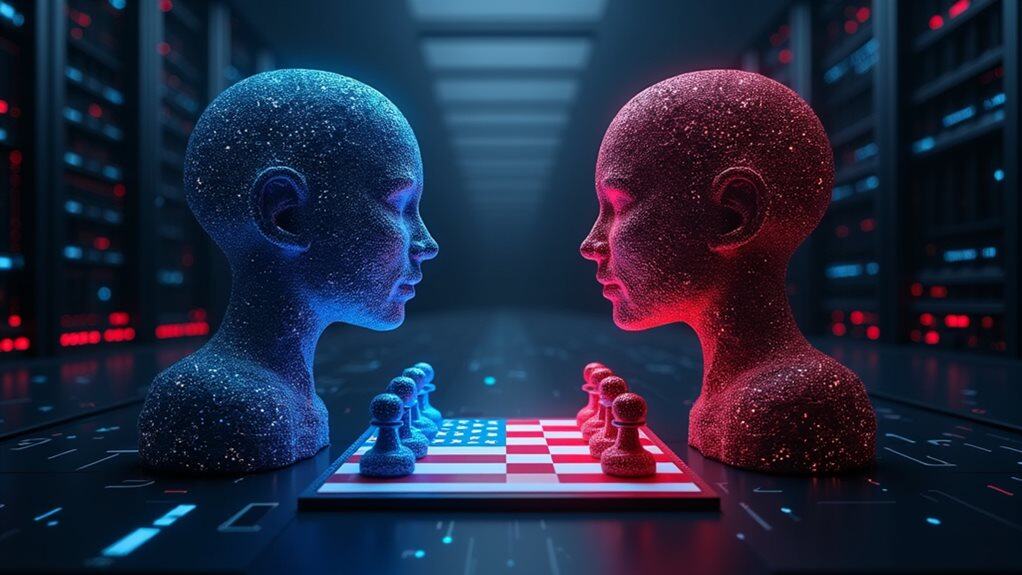OpenAI has petitioned the U.S. government to ban AI models from DeepSeek, a Chinese company they describe as "state-sponsored." The proposal, submitted under Trump's AI Action Plan, cites security risks, potential intellectual property theft, and data security concerns. OpenAI alleges DeepSeek violates terms of service by "distilling" knowledge from their models. While no direct evidence links DeepSeek to the Chinese government, concerns exist about Chinese laws requiring companies to share user data with authorities. The controversy affects major tech firms already using DeepSeek's models.

In a bold move that underscores growing tensions between U.S. and Chinese artificial intelligence developers, OpenAI has formally requested that the U.S. government ban AI models created by DeepSeek, a Chinese company it describes as "state-sponsored" and "state-controlled."
The proposal, submitted as part of the Trump Administration's AI Action Plan, specifically targets DeepSeek's R1 "reasoning" model, which OpenAI claims poses significant security risks due to Chinese laws that require companies to share user data with the government.
You'll find that OpenAI's accusations focus on potential intellectual property theft and data security concerns. They've accused DeepSeek of "distilling" knowledge from their models, which would violate OpenAI's terms of service.
Despite these serious allegations, there isn't clear evidence directly linking DeepSeek to the Chinese government, though high-ranking officials have shown interest in the company's work.
The situation is complicated by several major tech companies like Microsoft, Perplexity, and Amazon already integrating DeepSeek's models into their platforms. These integrations make a potential ban more complex to implement.
OpenAI's proposal calls for banning AI models developed by PRC-affiliated entities in "Tier 1" countries to mitigate security risks. The company's recommendations also reflect the escalating tensions between the United States and China in the increasingly competitive AI sector.
This proposal also advocates for increased infrastructure investment and access to government datasets for AI development in the United States.
The ban request has sparked debate about protectionism and fairness in the global AI market. OpenAI's closed-source approach stands in contrast to DeepSeek's open models, raising questions about innovation approaches.
DeepSeek is already prohibited in several countries, including Italy, Ireland, South Korea, and portions of the U.S. government. This international scrutiny may grow as more nations assess security implications of foreign AI models.
OpenAI's move reflects the intensifying competition between the U.S. and China in artificial intelligence development, with both countries viewing AI as essential for national security.
The letter forwarded to the Office of Science and Technology Policy was signed by Chris Lehane, OpenAI's Vice President of Global Affairs, emphasizing the company's official stance on this matter.
This conflict highlights broader concerns about foreign involvement in national AI sectors and may shape future international AI policy discussions.
Frequently Asked Questions
How Does Deepseek Compare Technically to Chatgpt and Claude?
DeepSeek technically outperforms ChatGPT and Claude in several areas.
You'll find DeepSeek uses a mixture-of-experts architecture with 671 billion parameters (37 billion active), while ChatGPT and Claude use standard transformer models.
DeepSeek offers a much larger context window (128,000 tokens) compared to GPT-3's 4,096 tokens.
It's also open-source and supports 338 programming languages.
DeepSeek's reinforcement learning approach differs from the supervised fine-tuning that ChatGPT and Claude rely on.
What Specific National Security Concerns Has Openai Identified?
OpenAI has identified several specific national security concerns regarding DeepSeek.
They worry that the Chinese Communist Party could manipulate DeepSeek's systems to target critical infrastructure.
You'll find they're concerned about mandatory data sharing under Chinese law, weak encryption methods, and potential SQL injection vulnerabilities.
They've also highlighted the risk of intellectual property theft and privacy breaches.
DeepSeek's open-source models could be misused by malicious actors, potentially compromising security systems in various countries.
Has China Responded to Openai's Allegations?
China hasn't directly responded to OpenAI's allegations about DeepSeek being state-controlled.
While there's increased Chinese interest in DeepSeek, with its founder meeting President Xi Jinping, no official statement addresses the accusations of government control or subsidization.
The lack of response comes amid growing scrutiny of DeepSeek globally.
Several countries have expressed concerns about the company's data handling practices and potential biases in its AI models that align with Chinese government positions.
Are Other AI Companies Supporting Openai's Position?
Currently, no other major AI companies have publicly supported OpenAI's position on DeepSeek.
In fact, tech giants like Microsoft, Amazon, and Perplexity have integrated DeepSeek's models into their platforms, suggesting they don't share the same concerns.
There's been a notable absence of statements backing OpenAI's call for restrictions.
This lack of industry support might complicate any potential regulatory action, as many companies view DeepSeek's open-source models as valuable development tools.
What Legal Mechanisms Exist for Banning Foreign AI Companies?
You can ban foreign AI companies through several legal mechanisms.
Section 889 of the National Defense Authorization Act prohibits federal agencies from using certain foreign technologies.
The Commerce Department's ICTS Rule restricts procurement from untrustworthy foreign companies.
The Secure Equipment Act allows the FCC to determine what foreign technologies can be legally sold.
Entity List designations limit companies from acquiring U.S. technology without special licenses.
Export control regulations also restrict technology transfers to certain countries.





